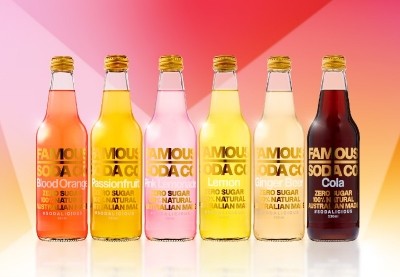Heart health in Indonesia: Researchers call for development of plant sterol fortified and functional products – BASF funded study

Cardiovascular diseases account for more than 30% of total deaths in Indonesia, with high blood cholesterol levels being a significant risk factor.
Plant sterols and stanols, also known as phytosterols, are a group of compounds known to lower cholesterol levels.
With no data on plant sterol intake among the Indonesian population readily available, researchers from Indonesia and Poland conducted a study to estimate intake and proposed suitable functional foods that can be developed to prevent hypercholesterolemia, while meeting Indonesian consumers’ taste requirements.
Study design
The cross-sectional study included 200 adults residing in Bogor (West Java, Indonesia).
Bogor has a higher prevalence of coronary heart disease between 7.8% to 12.1% in urban and rural areas respectively, compared to other districts within West Java.
All participants had healthy blood pressures levels, and were not on any medication.
Dietary data was collected to study plant sterol and nutrient intake, through a 2-day food recall and food frequency questionnaire.
Blood cholesterol levels were analysed through a fingertip test using a standard cholesterol home test kit.
Another section of the study analysed supplements and functional foods currently available on the market that were enriched with plant sterols.
Plant sterol intake
The overall plant sterol intake was found to be 229.76 mg/day on average (235.73 mg/day and 223.80 mg/day for urban and rural respondents respectively).
Cereals were the main source of plant sterols for all respondents, followed by legumes and legume products, and snacks foods.
This was similar to research done in Finland, Netherlands and China where most plant sterol intake from the diet also came from cereals.
However, Indonesia still has a relatively low intake of plant sterols compared with other countries, according to researchers.
Plant sterol intake in Finland was estimated to reach 305 mg/day for men and 237 mg/day for women, while in the UK it was 300 mg/d for men and 293 mg/day for women. In China, adult men and women also had higher plant sterol intake (330 mg/d and 311 mg/d, respectively).
Researchers think it might be due to diet differences, even within the same food group.
“For examples, cereals consumption in Indonesia is dominated by white rice instead of various types of cereals such as whole wheat, rye, and other cereals with higher plant sterols content, which are widely consumed in other countries.”
Impact on cholesterol
There was no significant association between the daily consumption of plant sterols and total blood cholesterol level in the studied population.
Researchers said it might be because the study was conducted on a healthy population, but no association does not necessarily mean a bad thing.
“It could be also considered that daily plant sterols intake contributed to keeping blood cholesterol in desirable level in healthy respondents.”
Because this study used a cholesterol home test kit which only measures total blood cholesterol levels, they suggest that to determine the effectiveness of plant sterol intake, a complete plasma lipid profile (including LDL cholesterol, HDL cholesterol, and triglycerides) should be considered.
Food formulation
There were several supplements of plant sterols as well as food products fortified with plant sterols or stanols identified in the Bogor market.
These include GNC’s Triple Fish with Phytosterol supplement, Nature’s Plus Thermo Tropic supplement, Tropicana Slim Non-fat Fitosterol milk powder and Nutrive’s Benecol smoothie and more.
However, few respondents actually consumed these, mainly due to limited awareness, unaffordable prices, and inconvenient methods of consumption.
Instead, researchers suggested developing plant sterol fortified products that catered better to the Indonesian population needs.
They are proposing bread, biscuits, noodles, fat spreads, sauces and palm oil as potential vehicles for plant sterols.
These products are generally consumed daily among Indonesians. Breads and biscuits are a popular breakfast or snack item, so are noodles.
The high daily palm oil consumption makes it highly feasible to be enriched with plant sterols, targeted for the Indonesian population, they said.
Meanwhile, spreads and oils are generally considered to be more preferable in solubilising plant sterols.
“They all have the potential to be used as successful vehicles of plant sterols enrichment and could be considered as the starter products intended not only for people with diagnosed hypercholesterolemia (first priority), but also for general population, for maintaining healthy blood lipid profile (as a preventive measure),” researchers said.
However, it should be underlined though that the economic aspect of the products’ fortification is very important and should be taken into consideration to ensure that low income groups would also benefit from such intervention.
Further studies required
While these findings provide baseline data to develop functional foods fortified with plant sterols suitable for the Indonesian needs, researchers called for further studies to consider possible long-term side effects.
Plant sterols are known to reduce cholesterol, but there have been ongoing scientific debates on their role in accumulating in the aortic valve tissue and contributing to the development of atherosclerotic lesions, and ultimately atherosclerosis.
Long-term studies are needed to confirm efficacy and safety of introducing such phytosterol-enriched products into a habitual diet, before making further decisions on such intervention.
This research was funded by the 1st BASF (Asia) Nutrition Research Grant.
Source: Nutrients
https://doi.org/10.3390/nu13020452
“Cross-Sectional Study of Plant Sterols Intake as a Basis for Designing Appropriate Plant Sterol-Enriched Food in Indonesia”
Authors: Drajat Martianto, et al.


















